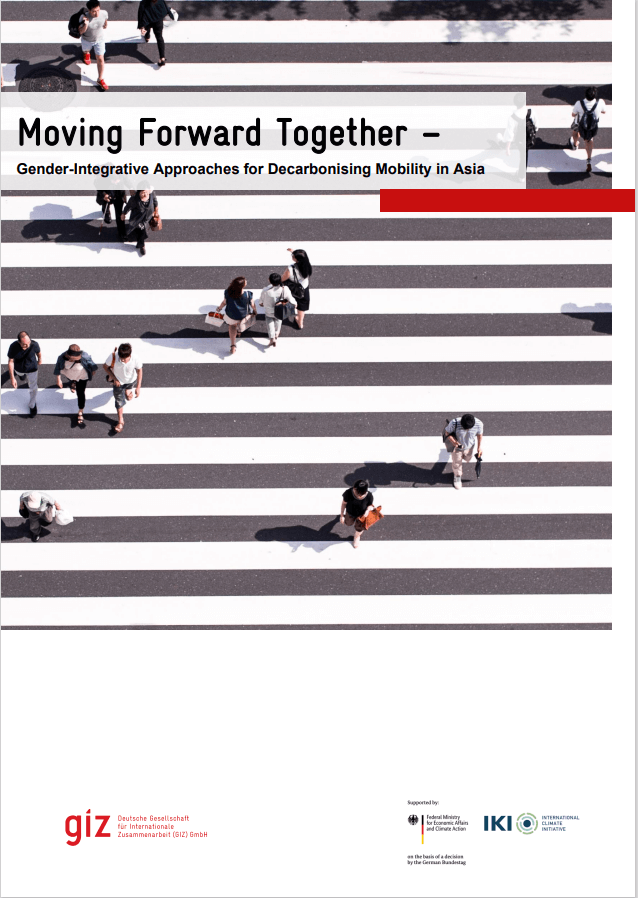What happens if cars clog the city, if road capacity is insufficient, if congestion is a daily hassle, or air pollution exceeds tolerable levels? Most people would agree that quality of life declines. Only a broad mix of actions, e.g. promoting cycling, giving priority to public transport, or supporting clean vehicles, will alleviate the problem.
In Germany, an up and coming approach receives more and more attention: carsharing. More than 700,000 members of carsharing services share cars on a regular basis. Instead of owning a car, they prefer to use (and pay for it) only when needed.
GIZ helps promote this new mobility service in China. In 2013, GIZ invited decision makers of the Ministry of Transport, provincial and local transport authorities as well as research institutes to a one-week study tour. The delegation experienced best practice examples of carsharing concepts in Germany and the Netherlands. Furthermore, GIZ organises carsharing trainings in China as well as networking events, workshops, and conferences.
Michael Glotz-Richter, one of the pioneers of carsharing in Germany, gave GIZ his insights on the rapidly evolving Chinese carsharing market. The 58-year old urban and regional planner has been heading the Department of Sustainable Mobility in the City of Bremen since 1996. The harbour town in Germany’s North is one of the good practice examples of carsharing and the first city worldwide with a carsharing action plan initiated by the local government. As an internationally renowned carsharing expert, Michael Glotz-Richter is regularly invited by GIZ to join events and give presentations in China.
Mr. Glotz-Richter, you have been focusing on carsharing for more than 20 years. How do you assess the current situation of carsharing in China?
“Since my first invitation to China in 2008, many things have changed. By now, the first privately owned companies are offering carsharing services. They are recognising the huge potential of this market. The interest in Chinese cities is enormous, as the pressure to act is high. Cities are running out of space for cars, no matter if they park or drive. Intelligent solutions are necessary to mitigate these problems.”
How can carsharing help?
“In Bremen, carsharing complements the well-developed public transport system and non-motorised transport options, such as cycling. This way, one carsharing vehicle replaces eleven privately owned cars – this shows the huge potential of carsharing. The most valuable benefit for Chinese municipalities is the possibility to retrieve public space and to reduce the space consumption of new urban developments. Those, who are familiar with parking demand and air quality in Beijing, know that carsharing can have a bright future in China.”
One of the major decision makers is the Ministry of Transport (MoT). Do you think this key Ministry will promote carsharing in China?
“I think it is a very positive signal that the Ministry of Transport has recently and for the first time ever put carsharing on the agenda of a three-day transport training with 250 decision makers from all over China. With the help of GIZ, MoT invited me to speak about carsharing and sustainable mobility. GIZ had already organised a study tour on carsharing concepts in Germany and the Netherlands with representatives from MoT in 2013. This indicates the increasing importance of sustainable urban transport concepts for MoT, including carsharing systems.”
What is required to render carsharing a success in a municipality?
“Carsharing needs to be part of city and transport planning and it needs to be integrated in public rail and bus transport. The success of carsharing crucially depends on highly visible carsharing stations and on the promotion of carsharing based on advertising and information campaigns. Local authorities themselves can lead by example through linking their fleet management with carsharing. The City of Bremen has achieved very good results in doing so.”
Is it possible to compare the momentum of Germany’s pioneer phase 20 years ago with the current situation in China?
“A comparison is only possible to a limited extent. The opportunities in China are much better nowadays. When we started carsharing in Germany, people used to smile at carsharing, mistaking it for a social experiment. Today, Germany alone counts 700,000 carsharing users. Back then, the technology, which makes carsharing so comfortable nowadays, such as the internet and smartphones, did not exist. Neither did we have the market experience of today. If a city wants to introduce carsharing now, it can simply use the tested set of instruments and start right away. Carsharing is a question of political will. And it requires a good private provider.”





